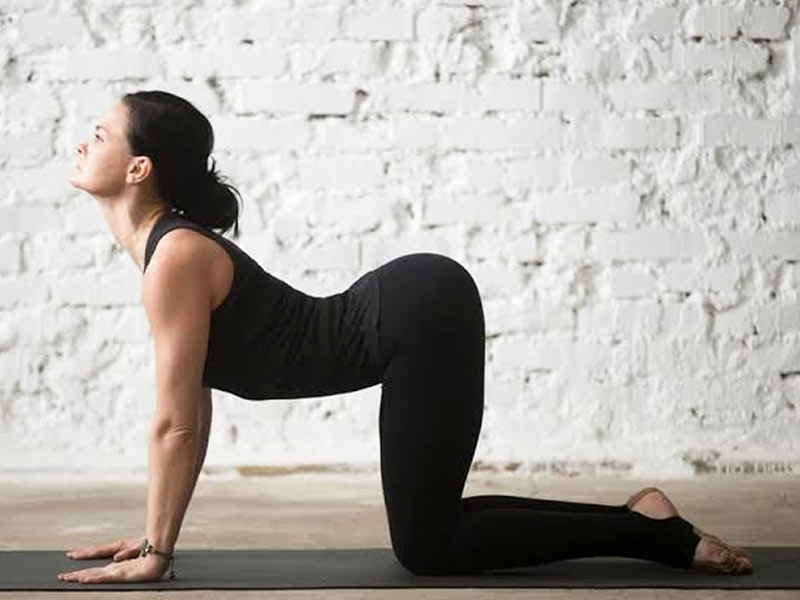
Definition of Yoga for Beginners Unlocked: Ace Your Yoga Sessions With These Tips!
The ancient practice of yoga is a set of poses and practices that aligns the body and mind into blissful harmony. The yogis practice meditation (pranayama) along with the asanas (poses); breathing techniques are the crux of all yoga practices.
Hatha yoga is what you generally mean when it comes to yoga in the West. But there are tons of other approaches that we shall discuss in this article. If you try to understand the proper meaning of Hatha yoga, it involves
- Shatkarma (internal cleansing)
- Mudra (holding the correct hand or body gestures)
- Pranayama (breathing techniques)
- Asanas (body postures)
Modern Hatha yoga focuses only on the body postures. Regardless of what you want to achieve, yoga is the best way for physical and mental strengthening. Keep reading to uncover tips on yoga for beginners. From wearing the right clothes to maintaining a breathing technique, we have got all the first-timers covered!
Why Should You Not Do Yoga?
Yoga is for everyone, old, young, heavy, skinny, practically everyone who has no medical conditions or recent injuries. You can still practice yoga with some alterations advised by a professional trainer in yoga. You must not feel pain anywhere in your body while attempting yoga asanas except for some intensity in your belly because of the stretching muscles. Sharp shooting and intense pain are your indications to stop, relax, and take it easy.
Yoga for Beginners
How should you begin practicing yoga and make it a part of your lifestyle? Here are a few points to keep in mind:
- If you are extremely inflexible or out of shape, beginning yoga will be difficult but we have got you covered. Practice gentle poses every day till you build up your body strength and flexibility.
- If you are already fit you may jump straight to hatha yoga, the basic yoga for beginners.
- Once you get familiar with the basic postures, you can explore vinyasa yoga (popularly called the flow class).
- We’d ask you to stay away from hot yoga, Bikram yoga, and Ashtanga yoga until you have built up enough strength as these are extremely physically demanding practices.
The Important Question: Tips for The First-Ever Yoga for Beginners
Keep these points in mind when you begin yoga for the first time:
- Get bare feet
- We’d say stand on the plain flat ground but if it’s too cold for you you can use a yoga mat. Indian dance or yogic practices always emphasize building your connection with the ground you stand on which is why being bare feet and standing on the ground is recommended.
- Get a sticky yoga mat so that it doesn’t slide while you perform your poses.
- Get some props to help you with the poses (especially if you are a beginner) like blankets, bolsters, blocks, and straps. You don’t need to buy these right away; substitute them with a stack of books, scarves, or neckties. You will be provided with the props in a yoga class.
- Wear stretchy clothes so that they don’t restrict your movement.
Once the above things are taken care of, you are ready for your first-ever yoga session.
- Make sure it lasts for 20 to 45 minutes long.
- Repeat such sessions 3 or more times a week.
- Lastly, make sure you learn the following along with the basic yoga postures:
- Relaxation
- Intention
- Meditation
- Breathing
FAQs
- What yoga should a beginner start with?
Hatha yoga is considered good for beginners as these asanas are quite slow-moving. Power yoga, ashtanga yoga, and vinyasa are more challenging types of yoga for beginners. Using props is the best way to smoothen out your asanas.
- How many minutes of yoga should a beginner do?
Your body may not be flexible enough to contort in the way normal yoga asanas do. So when you are a beginner, stay too short routines of 20 to 45 minutes long. It could also give you muscle cramps if you do it the wrong way for a long time. Practice yoga the right way for a minimum of 20 minutes every day to improve your muscle flexibility and be a pro at it eventually.
- Can I teach myself yoga?
Yes. technically you can be your own yoga guru once you spend a little time learning the basics of yoga. However, there is also a risk of sustaining injuries while becoming a skilled practitioner. The best approach is to find the best online courses on yoga and get trained.
- Who should not do yoga?
Yoga is forbidden for those in acute stress conditions, illnesses, and exhaustion. Menstruating women should also abstain from full-fledged yoga and instead can practice pranayama and/or relaxation techniques. Also do not perform yoga just after having a meal.
- Why is yoga so hard?
Yoga may be difficult for some as it demands physical flexibility. Unless you have a well-balanced fitness routine prior to beginning yoga, you will likely have stiff muscles and struggle with a lot of asanas. We are typically not used to breathing through our full lungs which is why yoga is initially difficult to practice.

























